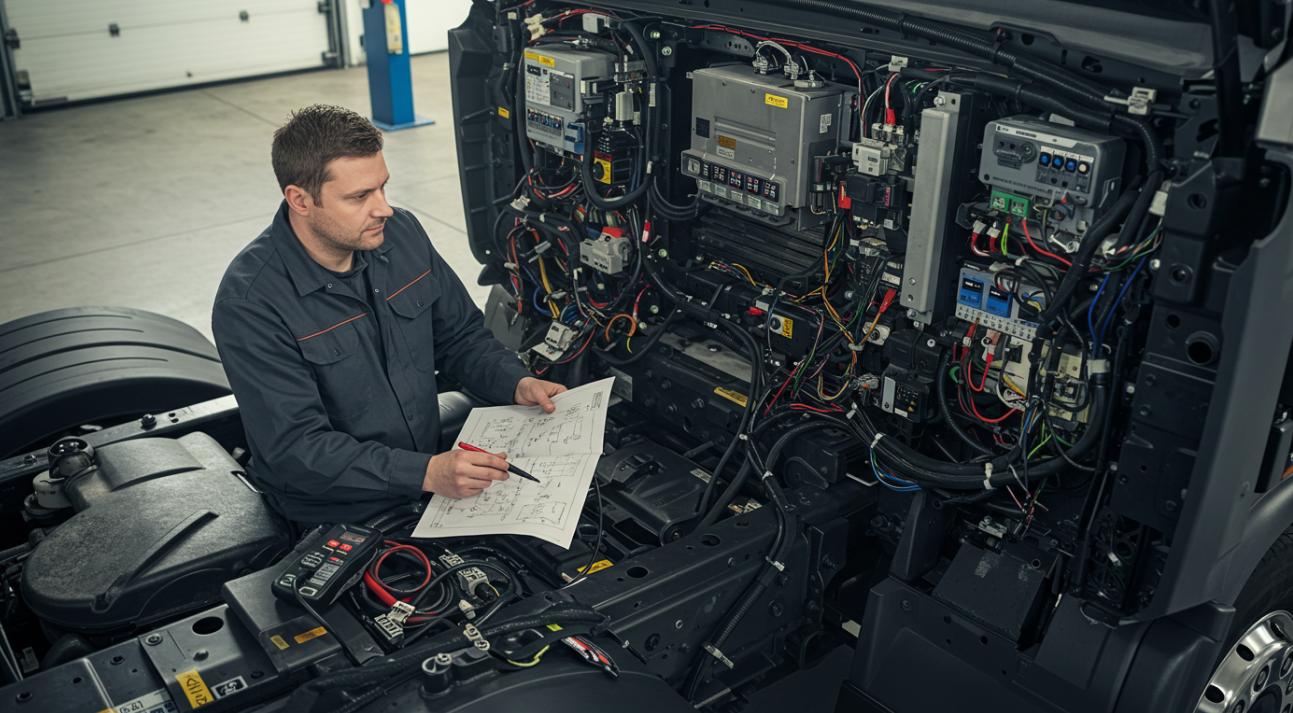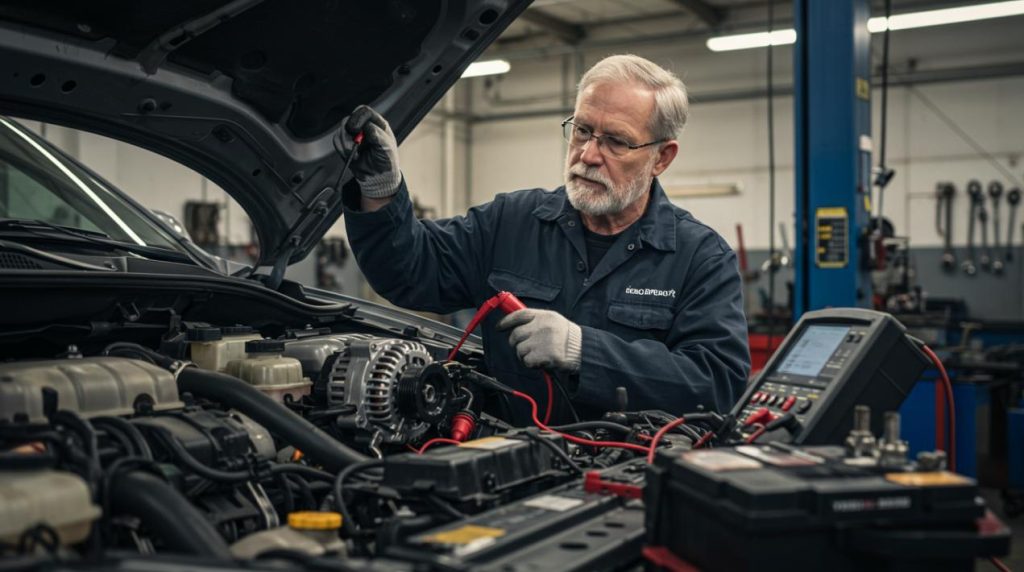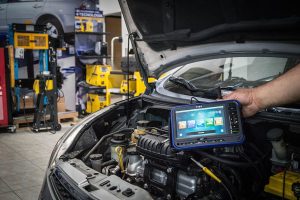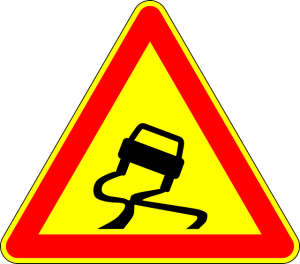Electrical problems are a major cause of car breakdowns, affecting nearly 40% of vehicles. Although vital, electrical maintenance is often neglected. Knowing your car’s electrical system, battery, alternator, wiring, and sensors, helps prevent expensive fixes and keeps your car running well. Explore our maintenance guide for confident driving.
Understanding Your Vehicle’s Electrical System
Your car’s electrical setup is essential in keeping everything running smoothly, way beyond just leaving the headlights shining or playing your favorite tunes. Cars today are highly dependent on intricate electrical systems controlling everything from engine startup to safety features. Ensuring the good health of these systems through regular upkeep is the key to avoiding breakdowns and costly repairs down the road.
The Role of Key Electrical Components
Let’s break down what makes your car’s electrical system tick, starting with the battery, essentially the heart of your system. It kick-starts your engine and keeps electronics alive when your car is off. Next up, the alternator works non-stop, replenishing your battery’s power while the engine runs. Then there’s your starter motor, indispensable for breathing life into your engine at ignition.
Beyond these heavy hitters, wiring throughout the vehicle delivers power seamlessly to devices like your infotainment system, lights, navigation, and safety mechanisms. Sensors and control modules inside your car monitor conditions and provide crucial feedback on your vehicle’s status. Knowing these players helps you better care for your car and quickly diagnose issues.
Essential Car Electrical Maintenance Practices
A bit of proactive care can save you from unwanted headaches later. Follow these manageable tasks consistently to maintain electrical reliability and peace of mind.
Visual Checks and Cleaning
First impressions matter, especially in auto care. Periodically examine the battery terminals for tell-tale signs of corrosion or dirt accumulation. A proper connection promotes optimum electrical flow, guaranteeing quicker startups. Clean the terminals gently using specialized battery cleaning spray or a baking soda and water mixture, followed by protective grease to prevent future buildup.
Regular Battery Testing and Replacement
Car batteries typically grace your vehicle with their power for about three to five years. Keeping track of your battery’s age is crucial, and periodic voltage tests help gauge its condition precisely. A battery reading under 12.4 volts when the engine’s off signals weakness, urging prompt replacement to avert potential roadside troubles.
Inspecting Alternator Performance
An underperforming alternator jeopardizes your battery life and vehicle efficiency by not providing consistent charge, leaving you susceptible to unexpected stalls. Routine checks allow you to detect early signs—dimming headlights, slow window operations, or battery warnings on your dashboard. Professional voltage tests can confirm if your alternator needs repair or replacement.

Safety Precautions During DIY Maintenance
Working on electrical systems requires caution, as mishaps can deliver harmful shocks or severe injuries. Equip yourself with protective gear like rubber gloves and eye protection to deflect any nasty acid spills or accidental sparks. Moreover, always disconnect your battery cables correctly, start with negative and reconnect positive first, to avoid sudden shorts or damage to sensitive electronics.
When to Seek Professional Assistance for Electrical Repairs
Some auto electrical issues extend beyond standard troubleshooting done at home. Complex wiring issues, safety system malfunctions, or persistent battery troubles signal to put down your wrench and bring in experts who have specialized equipment.
| Issue Type | DIY Possibility | Professional Servicing Advised |
|---|---|---|
| Battery Replacement | Easy at home task | If battery isn’t readily accessible |
| Alternator Problems | Limited | Highly recommended |
| Starter Motor Issues | Limited | Strongly advised |
| Faulty Wiring | Not recommended | Always advised |
| Fuse replacements | Simple task | If issue repeatedly occurs |
| Airbag System Errors | Never DIY | Always professionally |
Common Electrical Warning Signs You Can’t Ignore
As with anything mechanical, vehicles communicate subtle signals when something goes awry. Pay close attention, and act on these signs promptly for the best results:
- Dim Headlights or Interior Lights can indicate a charging problem, often linked to battery or alternator issues.
- Slow Engine Crank may suggest the starter or battery requires immediate attention to ensure your vehicle reliably starts.
- Frequent Blown Fuses could indicate an underlying wiring or electrical short problem needing professional attention.
Even with careful maintenance, complex electrical issues require expert attention for accurate solutions. Norseman Boatyard’s certified technicians specialize in electrical diagnostics and servicing. Schedule your electrical system inspection today to ensure your vehicle’s electrical health and drive with complete confidence.
To further complement your vehicle care regimen, we’ve found some helpful guides online: Explore this easy car maintenance guide to keep your rides smooth. Additionally, for enhanced understanding of how today’s car systems function, check out the complete guide on stop-start systems. Truck owners can benefit immensely from these practical resources: truck tire care tips or the informative article on tire tread depth maintenance. And don’t forget to review crucial advice on tools like pipe wrenches for vehicle repairs.




